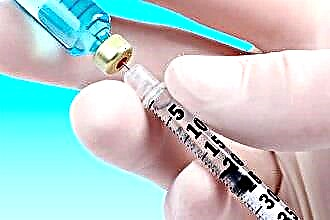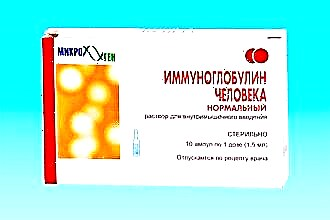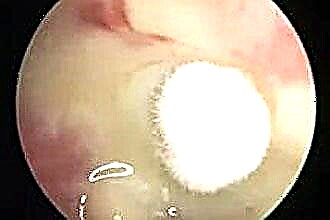Staphylococcus aureus is a pathogenic bacterium that can trigger a range of respiratory diseases. Microbial flora is localized mainly in the mucous membrane of the throat, nasal cavity and lungs, which causes the development of staphylococcal sore throat, pharyngitis, pneumonia, rhinosinusitis, etc. What medicines can be used to treat staphylococcus aureus in the throat?
Many types of staphylococci are insensitive to antimicrobial agents, therefore, it is possible to eliminate the infection in the ENT organs only with the passage of complex therapy. Staphylococcus aureus secretes a special enzyme - penicillinase, which neutralizes the effect of antibiotics. Therefore, chemically modified antibiotics resistant to beta-lactamase and penicillinase are used to destroy pathogens.
Directions of therapy
 How to treat staphylococcus aureus in the respiratory tract? Despite the fact that microbes are resistant to many antibiotics, most of them are sensitive to the action of antiseptic drugs. To prevent the active development of pathogens in the respiratory organs, drugs of both systemic and local action are used.
How to treat staphylococcus aureus in the respiratory tract? Despite the fact that microbes are resistant to many antibiotics, most of them are sensitive to the action of antiseptic drugs. To prevent the active development of pathogens in the respiratory organs, drugs of both systemic and local action are used.
All medicines that are used in the treatment of Staphylococcus aureus are conventionally divided into the following groups:
- medicines that stimulate the synthesis of immune cells (antibodies), due to which a microbial-resistant immunity is formed;
- antistaphylococcal drugs that destroy gram-positive bacteria without any stimulation of the immune system (most drugs include bacteriophages that devour pathogenic cells);
- antimicrobial and disinfecting agents that are used together with anti-staphylococcal medicines;
- herbal remedies that stimulate metabolic processes and thereby increase the body's resistance to staphylococcal infections.
If symptoms of bacterial sore throat are found, you should not postpone a visit to the otolaryngologist. Only a qualified specialist can choose the right medicines and draw up a competent anti-staphylococcal therapy regimen.
Thus, local and systemic antibiotics, antiseptic solutions for gargling and throat irrigation, as well as anti-staphylococcal drugs are used to treat Staphylococcus aureus.
Types of medications
Staphylococcus aureus has high antibiotic resistance, i.e. resistance to antimicrobial agents. Therefore, drugs with high activity against this pathogen are used only for the treatment of complicated forms of diseases. This approach reduces the risks of developing bacterial resistance to still effective antibacterial agents.
In a standard situation, the following types of medicines are used to suppress the activity of the microbial flora in the throat:
- bacteriophages;

- staphylococcal vaccine;
- antistaphylococcal immunoglobulin;
- bacterial lysates;
- staphylococcal toxoid;
- aloe preparations;
- complex immunoglobulin preparation;
- antiseptic solution "Chlorophyllipt".
With the spread of infection, staphylococci can affect not only the mucous membranes, but also the skin. To eliminate boils on the skin, antimicrobial ointment "Mupirocin" can be used, which contains antibacterial components.
Antimicrobial therapy
When the respiratory tract is damaged by bacteria, purulent foci are more often formed in the mucous membrane of the throat. If left untreated, it can lead to an abscess and even blood poisoning. For this reason, treatment for staphylococcal infections begins with antimicrobials. The therapy regimen includes cephalosporins and penicillins, which are not sensitive to the action of neutralizing enzymes of bacteria.
In the process of using drugs, one must take into account the possibility of allergic reactions. If penicillins provoke immediate side effects - edema, redness, itching, etc., they are replaced with cephalosporins. Antibiotics commonly used to treat bacterial respiratory infections include:
- "Ampicillin";
- Cefazolin;
- "Naftsilin";
- Cefuroxime;
- Clindamycin.
Sometimes sulfa drugs that contain sulfamethoxazole are included in the therapy regimen. The most effective drug is considered "Co-trimoxazole", which can be used in the treatment of tonsillitis, laryngitis, tracheobronchitis, pneumonia, etc. Among the known analogues of the drug are "Bactrim", "Oriprim" and "Biseptol".
Antistaphylococcal drugs
Antistaphylococcal drugs are used to treat complicated and uncomplicated respiratory diseases caused by bacteria. They include components that either destroy pathogens or stimulate the formation of specific antimicrobial immunity. You can destroy Staphylococcus aureus in the throat by such means as:
 staphylococcal toxoid - an immunostimulating drug that contains neutralized microbes; stimulates the production of antibodies in the body that are active against Staphylococcus aureus;
staphylococcal toxoid - an immunostimulating drug that contains neutralized microbes; stimulates the production of antibodies in the body that are active against Staphylococcus aureus;- staphylococcal bacteriophage - a bactericidal drug that contains viruses (phages) that devour pathogenic bacteria;
- antistaphylococcal immunoglobulin - an injection solution that contains antibodies to toxic substances synthesized by staphylococci; helps to increase immunity and enhance the action of antimicrobial agents;
- staphylococcal vaccine - a solution in ampoules that contains thermostable antigens extracted from staphylococci; stimulates the formation of anti-staphylococcal immunity.
Important! You can not use the above drugs for the treatment of respiratory diseases of non-staphylococcal etiology.
Antistaphylococcal therapy guarantees almost 100% cure of the disease in the event of a timely visit to a doctor. In addition, immunostimulating agents contribute to the development of stable immunity, which reduces the risk of recurrence of bacterial inflammation in the respiratory tract.
Bacterial lysates
Bacterial lysates are immunomodulatory agents, which include inactivated (weakened) staphylococci. By the principle of action, they have much in common with vaccines, since they contribute to the development of specific immunity in the body. The domestic market offers two types of medicines that can be used in the treatment of respiratory diseases - "Broncho-Vaxom" and "Broncho-munal". They can be prescribed to treat bacterial sore throats or to prevent staphylococcal infections.
The most effective vaccinations against staphylococcal sore throat, laryngitis and pharyngitis include:
 "IRS-19" is a complex remedy that can be used to treat purulent inflammation in the throat and nasal cavity, i.e. tonsillitis, sinusitis, rhinitis, pharyngitis;
"IRS-19" is a complex remedy that can be used to treat purulent inflammation in the throat and nasal cavity, i.e. tonsillitis, sinusitis, rhinitis, pharyngitis;- "Imudon" is an immunostimulating agent that increases the activity of protective cells; increases the number of macrophages in saliva, thereby accelerating the destruction of microbes in the laryngopharynx;
- Ribomunil is a drug that contains ribosomes of staphylococci, which stimulates the production of specific antibodies in the body.
At the beginning of taking immunostimulating drugs, a short-term exacerbation of inflammatory processes in the throat is possible.
The duration of immunocorrective therapy depends on the severity of the disease, the dynamics of recovery and, of course, the state of immunity. Patients with low body resistance are recommended to take vaccinations for at least 1.5-2 months in a row.
Aloe preparations
Century or aloe is a natural immunostimulant, the use of which helps to reduce the soreness and size of purulent foci. Aloe-based preparations are injected subcutaneously for several days after the first signs of purulent sore throat are detected. However, it should be remembered that the agave has many side effects, therefore, the dosage and frequency of taking the drug can only be prescribed by the attending physician.
Important! Do not use injection solutions for menstruation and acute inflammation of the abdominal organs.
Aloe liquid aqueous extract has a pronounced antimicrobial and immunostimulating effect. It is used in the treatment of respiratory diseases and furunculosis. Because the drug slightly increases blood pressure, hypertensive patients are given it every other day. In case of staphylococcal pneumonia or sepsis, aloe for injection is replaced with an alcoholic solution of "Chlorophyllipt", which is administered intravenously.
Throat flushing
 It should be understood that antibiotics for Staphylococcus aureus in the throat can adversely affect the state of the ciliated epithelium, which is covered with the inner surface of the respiratory tract. To minimize side effects, sanitizing procedures are recommended to cleanse the mucous membranes from purulent foci. Throat flushing with antiseptics can reduce the concentration of bacteria in the lesions and prevent the development of chronic inflammation.
It should be understood that antibiotics for Staphylococcus aureus in the throat can adversely affect the state of the ciliated epithelium, which is covered with the inner surface of the respiratory tract. To minimize side effects, sanitizing procedures are recommended to cleanse the mucous membranes from purulent foci. Throat flushing with antiseptics can reduce the concentration of bacteria in the lesions and prevent the development of chronic inflammation.
It is undesirable to use eucalyptus tincture or "Lysozyme" as rinsing solutions, since they do not give the desired therapeutic results. To alleviate the patient's condition, you can use the following pharmacy products:
- "Chlorophyllipt" - has antimicrobial effect and helps to destroy bacteria resistant to penicillin antibiotics;
- "Rivanol" - disinfects the throat, destroying most strains of gram-positive cocci, reduces swelling and helps to restore the integrity of the mucous membranes;
- "Lugol's solution" - destroys the capsules of anaerobic microbes, thereby reducing the severity of inflammatory reactions in soft tissues.
When swallowing antiseptic solutions, allergic reactions often occur. To reduce the likelihood of side effects, the drugs are diluted with water before use.
Nasal drops
Staphylococcal infection progresses very quickly, affecting the mucous membrane of not only the throat, but also the nasal cavity. To reduce inflammation in the nasal passages and facilitate breathing, it is recommended to use nasal drops that have anti-inflammatory and antimicrobial effects.
 Antibacterial sprays and nasal drops should be taken with caution in pregnant women and toddlers. Drug abuse entails a decrease in local immunity, so the risk of bacteria entering the auditory (Eustachian) tube increases several times. To eliminate purulent inflammation in the nose, you can use the following remedies:
Antibacterial sprays and nasal drops should be taken with caution in pregnant women and toddlers. Drug abuse entails a decrease in local immunity, so the risk of bacteria entering the auditory (Eustachian) tube increases several times. To eliminate purulent inflammation in the nose, you can use the following remedies:
- "Isofra" - contains antimicrobial components active against staphylococci; eliminates purulent foci and the severity of allergic reactions;
- "Polydexa" - destroys the capsules of pathogenic bacteria, which helps to reduce the severity of inflammatory reactions in the mucous membranes;
- "Protargol" - disinfects mucous membranes and prevents the penetration of bacteria waste products into the mucous membranes, thereby reducing the swelling of the nasal membrane.
To speed up the healing process, it is recommended to lubricate the inner surface of the nasal passages with antibacterial ointments - "Tetracycline ointment" or "Erythromycin ointment". Local antibiotics eliminate purulent inflammation and swelling of the mucous membranes.
Multivitamins
Vitamin-mineral complexes - dietary supplements, which include trace elements, minerals and vitamins, which normalize biochemical processes in the body. They are available in the form of capsules, lozenges, syrups and even injection solutions. There are many poker rooms that offer to play cards for real money and it is possible to earn decent sums if you are lucky. It is difficult to choose a decent gambling platform, but you should go to the Poker House official website to evaluate the convenience and range of offered poker disciplines. This service is not in vain considered one of the best, especially since it is designed for players from Russia, offering rubles as the internal currency. If the reason for the development of staphylococci in the throat is a deficiency of nutrients, the following types of multivitamins can be prescribed to the patient:
- Vitrum;

- "Pikovit";
- "Alphabet";
- Vitamol;
- "Supradin".
Modern drugs are produced taking into account the gender and age of the patient. Despite the fact that they do not include antibiotics and hormonal components, regular intake of dietary supplements can significantly increase the body's resistance to pathogenic viruses, fungi and bacteria, in particular staphylococci. They are used both in the treatment of respiratory diseases and for their prevention.
To speed up the healing process, it is recommended to take a multivitamin that contains pyridoxine, retinol, ascorbic acid, biotin, choline and riboflavin. These vitamins stimulate nonspecific immunity and tissue reactivity, which reduces the likelihood of penetration of pathogens into the mucous membranes of the nose and throat.


 staphylococcal toxoid - an immunostimulating drug that contains neutralized microbes; stimulates the production of antibodies in the body that are active against Staphylococcus aureus;
staphylococcal toxoid - an immunostimulating drug that contains neutralized microbes; stimulates the production of antibodies in the body that are active against Staphylococcus aureus; "IRS-19" is a complex remedy that can be used to treat purulent inflammation in the throat and nasal cavity, i.e. tonsillitis, sinusitis, rhinitis, pharyngitis;
"IRS-19" is a complex remedy that can be used to treat purulent inflammation in the throat and nasal cavity, i.e. tonsillitis, sinusitis, rhinitis, pharyngitis;


